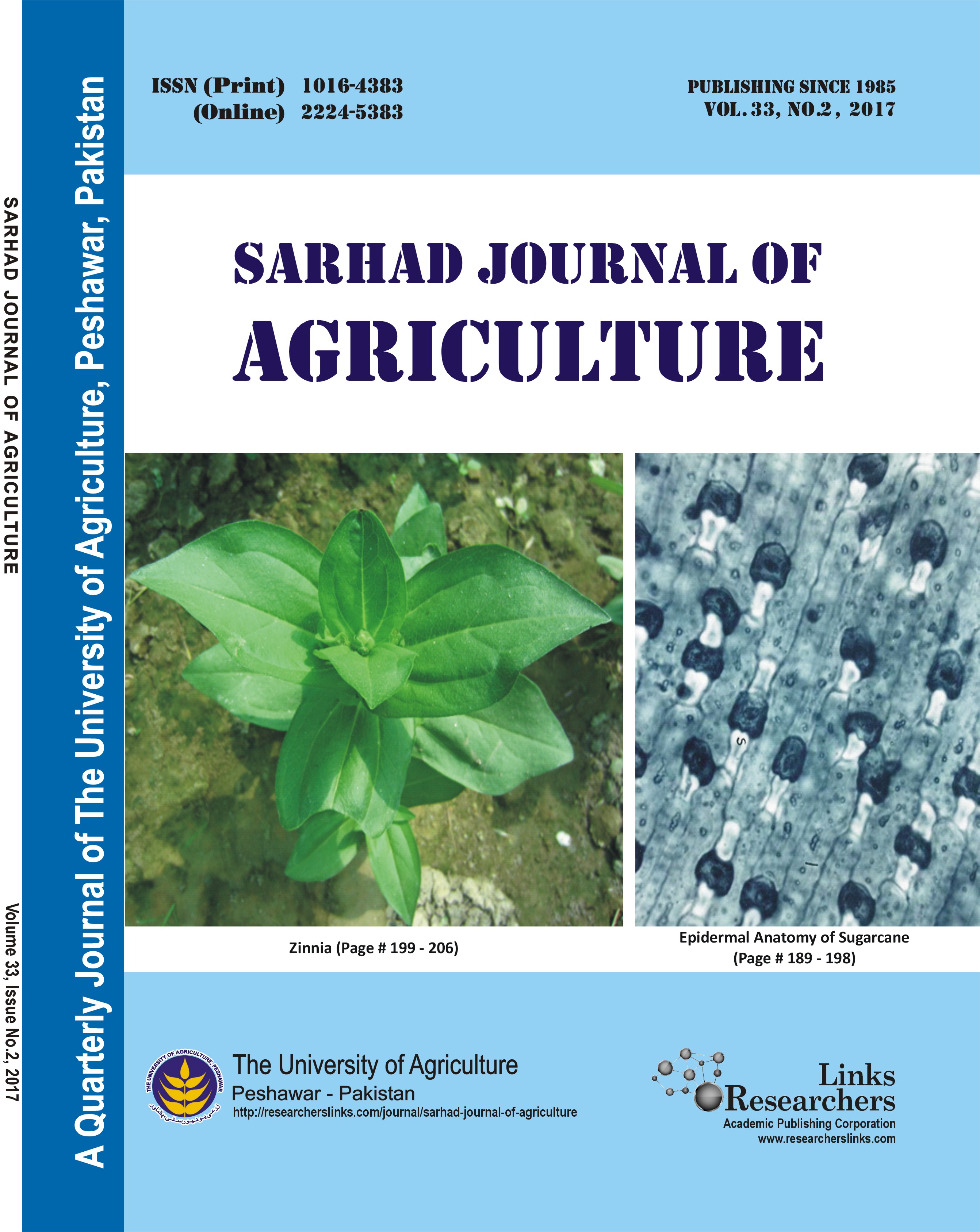Does Endogeneity Undermine Temperature Impact on Agriculture in South Asia?
Does Endogeneity Undermine Temperature Impact on Agriculture in South Asia?
Muhammad Iftikharul Husnain1, Aneel Salman1, Inayatullah Jan2*, Tahir Mahmood3
ABSTRACT
This study uses annual data for five South Asian countries for the period 1999 to 2014 to investigate the impact of temperature on agriculture controlling for potential endogeneity by using locality as an instrument. Unsurprisingly, the magnitude of temperature coefficient increases substantially when endogeneity is controlled and becomes significantly higher (6 percent to 13 percent) than the previously reported findings in the literature. The findings suggest that endogeneity is a crucial issue and must be controlled before carrying out an empirical analysis on the temperature-agriculture nexus to obtain reliable estimates of the regression coefficients. Policymakers should pay more attention to combat negative impacts of rising temperature. This will have an impact on the agriculture and hence on the livelihood of the mass population residing in South Asian countries.
To share on other social networks, click on any share button. What are these?







